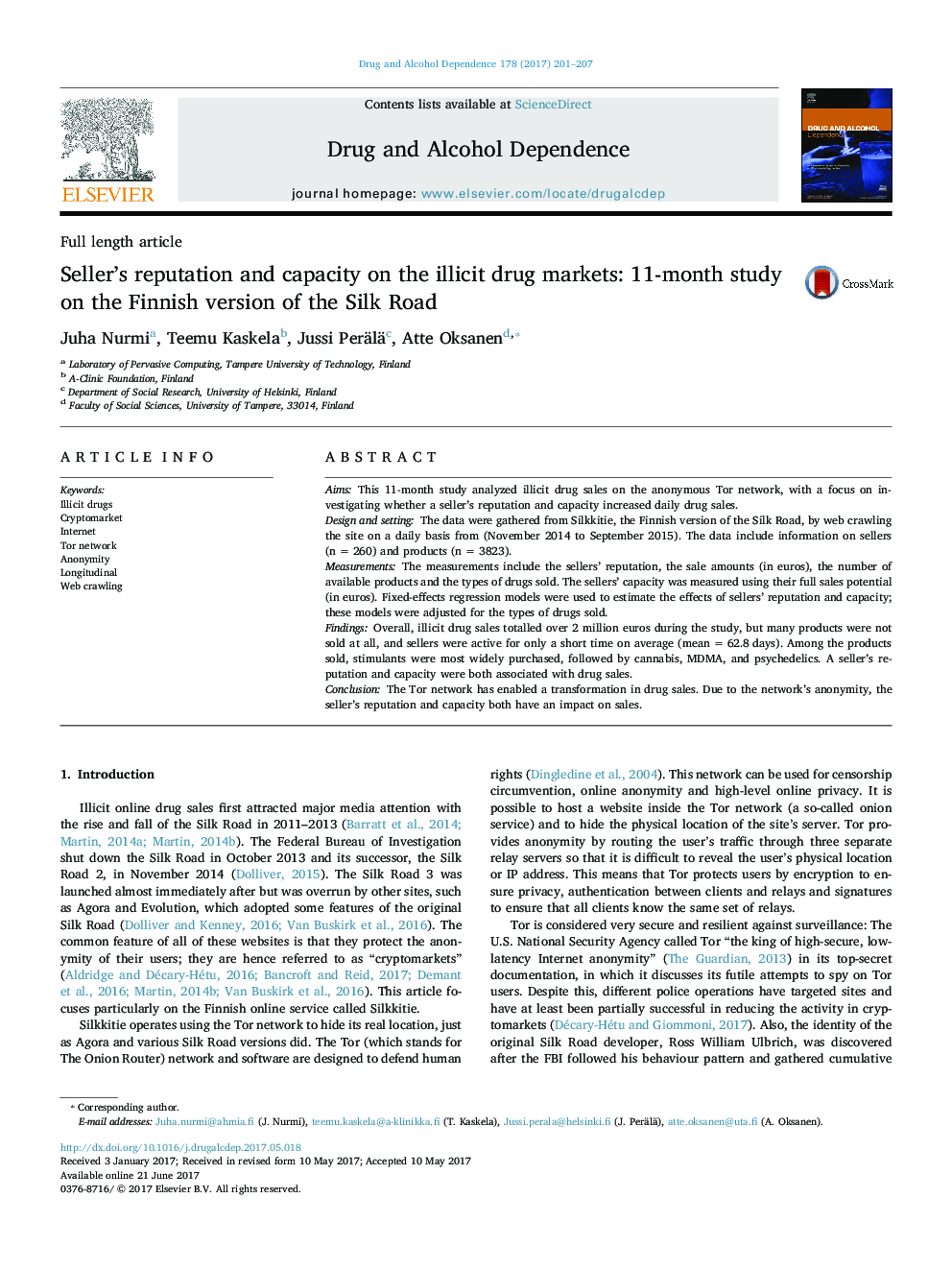| Article ID | Journal | Published Year | Pages | File Type |
|---|---|---|---|---|
| 5120350 | Drug and Alcohol Dependence | 2017 | 7 Pages |
â¢The Tor network has enabled a transformation in illicit drug sales.â¢This 11-month study provided new evidence on online trust systems.â¢Both seller reputation and capacity indicated higher daily sales of illicit drugs.
AimsThis 11-month study analyzed illicit drug sales on the anonymous Tor network, with a focus on investigating whether a seller's reputation and capacity increased daily drug sales.Design and settingThe data were gathered from Silkkitie, the Finnish version of the Silk Road, by web crawling the site on a daily basis from (November 2014 to September 2015). The data include information on sellers (n = 260) and products (n = 3823).MeasurementsThe measurements include the sellers' reputation, the sale amounts (in euros), the number of available products and the types of drugs sold. The sellers' capacity was measured using their full sales potential (in euros). Fixed-effects regression models were used to estimate the effects of sellers' reputation and capacity; these models were adjusted for the types of drugs sold.FindingsOverall, illicit drug sales totalled over 2 million euros during the study, but many products were not sold at all, and sellers were active for only a short time on average (mean = 62.8 days). Among the products sold, stimulants were most widely purchased, followed by cannabis, MDMA, and psychedelics. A seller's reputation and capacity were both associated with drug sales.ConclusionThe Tor network has enabled a transformation in drug sales. Due to the network's anonymity, the seller's reputation and capacity both have an impact on sales.
